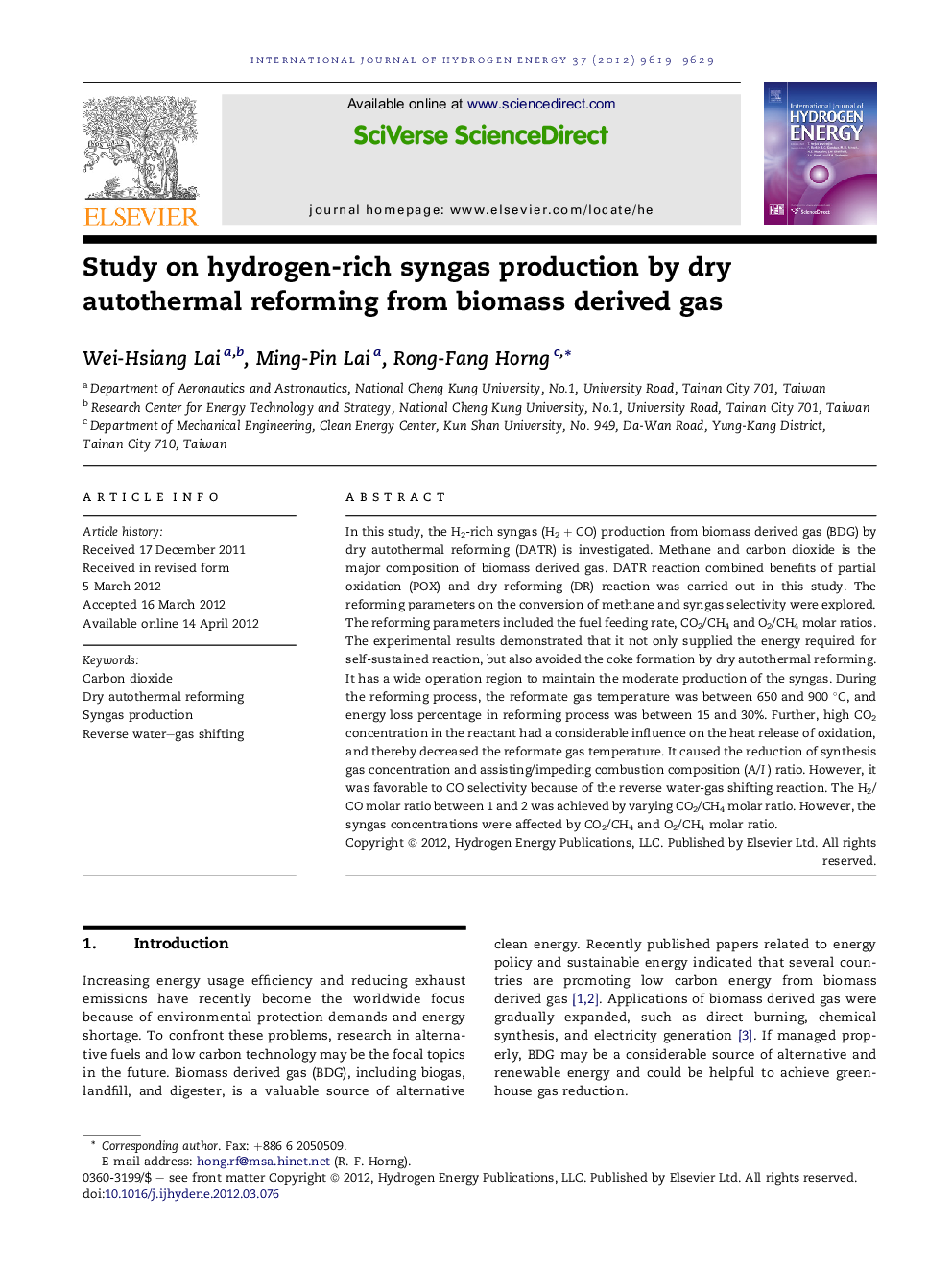| Article ID | Journal | Published Year | Pages | File Type |
|---|---|---|---|---|
| 1271275 | International Journal of Hydrogen Energy | 2012 | 11 Pages |
In this study, the H2-rich syngas (H2 + CO) production from biomass derived gas (BDG) by dry autothermal reforming (DATR) is investigated. Methane and carbon dioxide is the major composition of biomass derived gas. DATR reaction combined benefits of partial oxidation (POX) and dry reforming (DR) reaction was carried out in this study. The reforming parameters on the conversion of methane and syngas selectivity were explored. The reforming parameters included the fuel feeding rate, CO2/CH4 and O2/CH4 molar ratios. The experimental results demonstrated that it not only supplied the energy required for self-sustained reaction, but also avoided the coke formation by dry autothermal reforming. It has a wide operation region to maintain the moderate production of the syngas. During the reforming process, the reformate gas temperature was between 650 and 900 °C, and energy loss percentage in reforming process was between 15 and 30%. Further, high CO2 concentration in the reactant had a considerable influence on the heat release of oxidation, and thereby decreased the reformate gas temperature. It caused the reduction of synthesis gas concentration and assisting/impeding combustion composition (A/I) ratio. However, it was favorable to CO selectivity because of the reverse water-gas shifting reaction. The H2/CO molar ratio between 1 and 2 was achieved by varying CO2/CH4 molar ratio. However, the syngas concentrations were affected by CO2/CH4 and O2/CH4 molar ratio.
► Biomass derived gas is used to produce hydrogen by autothermal dry reforming. ► Syngas (H2 + CO) concentration is affected by CO2/CH4 and O2/CH4 molar ratios. ► O2/CH4 ratio can be used to control the yield and heating value of the syngas. ► High CO2/CH4 ratio gives high CO selectivity but low hydrogen selectivity. ► CO2 in the reactant reduces the oxidation heat and the reformate temperature.
